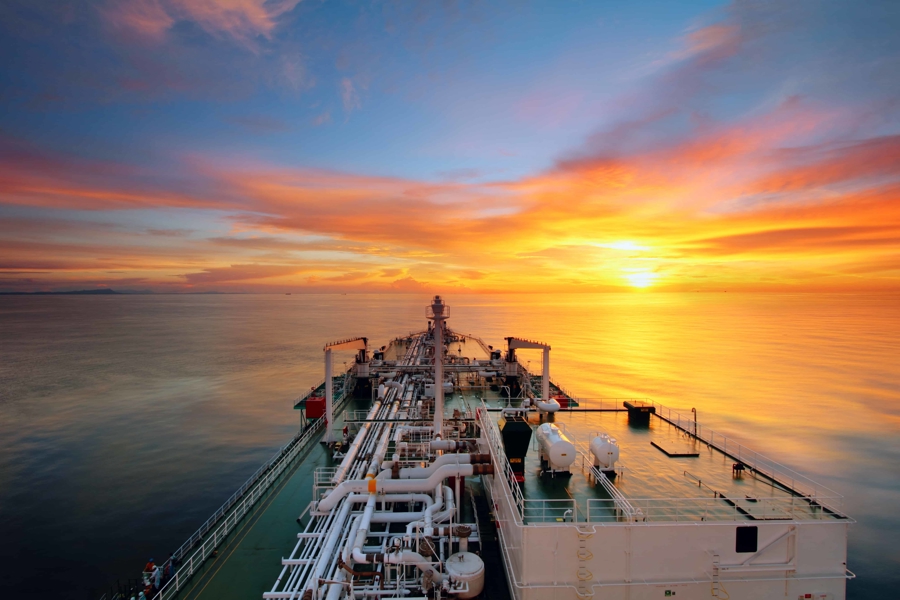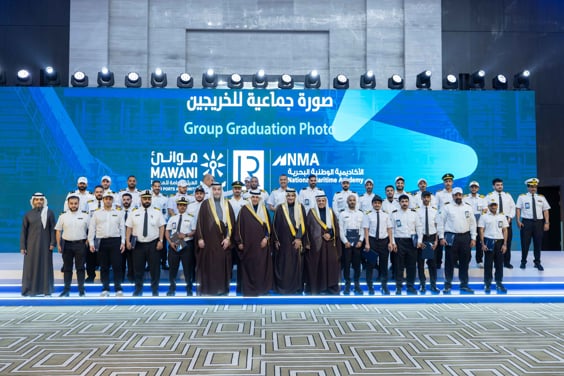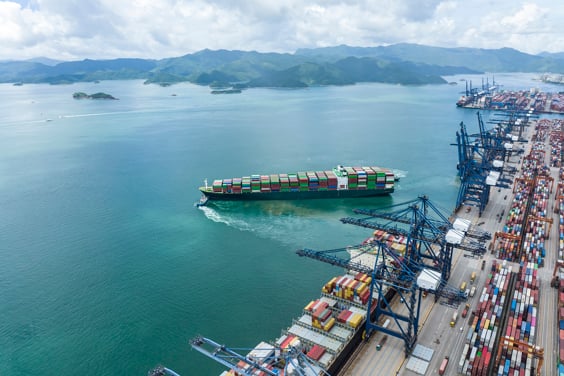
LR helps you shift from incremental compliance to a proactive, strategic approach that aligns emissions reduction goals with commercial stability.
The maritime energy transition is a multi-faceted problem with no blueprint solution. Rapid regulatory changes, evolving market conditions, and uncertain technology pathways create an environment where long-term planning is fraught with risk. Every shipping company must balance the need to immediately reduce emissions with long-term planning around asset lifecycles, capital allocation, and business strategy.
Rapid regulatory changes, evolving market conditions, and uncertain technology pathways create an environment where long-term planning is essential.
LR develops energy transition roadmaps tailored to your fleet, business model, and appetite for risk by balancing:
- Emissions reductions
- Long-term planning around asset lifecycles
- Capital allocation
- Business strategy
- Fleet renewal
- Retrofits and technology options
- Operational considerations
- Fuel options
Why LR
By integrating commercial, technical, and operational considerations, LR helps you navigate uncertainty and position your businesses for long-term success.
Examples
Decarbonisation strategy: TMS Group
LR, TMS Tankers Ltd. and TMS Cardiff Gas Ltd. collaborated to explore and define compliance pathways for the TMS Group’s fleet transition towards sustainable and environmentally compliant operations.
George Kourelis, General Manager of TMS Tankers Ltd.& TMS Cardiff Gas Ltd. said, “We are in an era of changes, investing heavily in new construction and fleet expansion, ensuring that our fleet remains energy efficient. It is imperative that we explore all potential future compliance pathways and strategies to ensure our fleet meets future environmental regulations."
Decarbonisation strategy: Kuwait Oil Tanker Company (KOTC)
The Kuwait Oil Company, a highly respected energy major, relies on KOTC to fulfil the sea transport requirements of its commercial shipping operation, managed by the Kuwait Petroleum Corporation.
With advice from the client on objectives, LR’s Advisory conducted a comprehensive review and gap analysis of the KOTC fleet, to prepare vessel by vessel strategies that enhance carbon efficiency while maintaining commercial competitiveness.
Carbon intensity indicator (CII) assessments together with a gap analysis of today’s regulation and how they will evolve. Options on for carbon-reducing technologies like reduced speed, energy saving devices, voyage optimisation software and new fuels.
According to Jack Spyros Pringle, LR Global Head, Energy Transition Advisory, KOTC has, “an impeccable record of first-class operation, a proactive approach to embracing industry developments, particularly in the environmental, social and governance arena, and new ambitious targets on decarbonising its fleet operations.”
“Our job is to help them to manage it as effectively as possible,” he said.
Decarbonisation strategy: COFCO
LR evaluated the fleet characteristics, operational profile, and environmental impact of COFCO International’s fleet of around 50 ships, and operation of more than 200 ships.
The project assessed the effectiveness of existing emissions reductions technologies already installed on COFCO’s fleet, giving the company insights into new and alternative existing technologies, voyage optimisation tools, as well as their potential impact on COFCO International's emission profile.
The objective was to identify feasible strategies for the COFCO to reduce its carbon footprint. Alberto Perez, Global Head, Maritime Commercial Markets LR said: “The partnership represents a crucial step in our collective efforts to address the urgent challenge of decarbonisation and by leveraging our expertise and resources, we can make significant strides towards the maritime freight sector’s energy transition.”

 Energy Transition Strategy
Energy Transition Strategy









